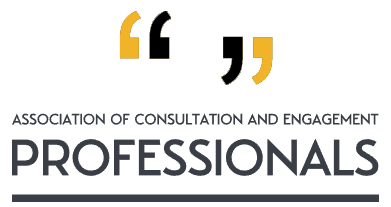Green engagement is going strong. Citizens assemblies and national dialogues have teased out multiple climate conversations but they always seem to under-deliver. In fairness, there is evidence of positive impact – often because government, nationally and locally, has responded and taken action. Dialogues are just part of the mix – what’s needed is a multitude of join-up elements which includes stakeholder engagement and public consultation around infrastructure and policy changes, and work on attitudes, behaviours and cultures to support and drive change.
The interplay between climate change and culture has been an area of recent focus. For example, a drive to break normal patterns of behaviour, think about sustainable IT or fix instead of replace. However, a growing problem is that public concern about climate change does not necessarily translate into committed public support for the types of changes required to meet net zero.
We’ve seen resistance in the plans to expand the London ULEZ and delays to implementing similar schemes in other cities like Manchester, introducing cycling schemes and developing green infrastructure. A lack of awareness about many of the changes that are required is not helping; pre-consultation engagement is too readily overlooked and it is undercooked when it comes to being educational. Social media culture wars play their part where message amplification and representation are inequal – perhaps an indication of the need for better, representative and ongoing dialogue as well as specific consultations.
France has taken a pragmatic approach to this. As of Tuesday 23 May, the French government is opening up a public consultation that will last until the end of the summer to try and define a roadmap for climate change adaptation. It will serve as a basis for future policies, making it easier to strengthen them. It will also be used to come up with the next French climate change adaptation plan which is expected by the end of the year. It should be noted that France has also made some tough decisions, around issues from packaging and bio-materials through to banning short-haul flights where train options already exist for journeys of less than 2.5 hours.
Delivering net zero will require change at multiple scales and levels. Some local authorities have climate change engagement plans and many have declared climate emergencies but the trickle-down is slow. For example, net zero is all but ignored in many public consultations that concern changes to patient transport or affect ambulance trusts despite NHS Net Zero targets.
There is at least some deliberative action at the local level, summed up nicely in a recent report by KNOCA and Involve on climate “mini publics”. Much of this work was funded by local government but there was also action backed by Universities and Housing Associations.
Business and industry must also play their part. Which is even harder when they have no duty or little experience in engaging people in decision making. A prime example was the backlash by Sainsburys customers on new “eco-friendly” mince beef packaging.
The new packaging was designed to use 55 per cent less plastic as the supermarket had committed to halving its use of plastic packaging in own-brand products by 2025. However, the result meant that mince became mushed and the change was not well received. Maybe business needs to take a tougher line on this, and stand strong in the face of criticism… assuming their decisions have a sound scientific basis.
As we’ve promised to prioritise the ingress on Net Zero engagement, we’ve embedded good practices into our standard . However, here are three ready-made actionable insights for the industry:
1. Embed information about climate and net zero impact of proposals in public consultationsof all types but particularly at the local level. This could be enhanced in a number of ways, such as visual representations or standardised reporting for stakeholders and politicans.
2. Raise the bar of public engagement and participation on climate change in the private sector. This could even mean joint consultation and engagement exercises. We are ready to do the capacity-building piece!
3.Be more French and conduct more research on the stakeholder inputs needed to achieve long term change. Working backwards from a long-term plan or strategy, it’s not hard to see where consultation or engagement will be invaluable. Going down a journey of discovery will help map the participation needs of policymakers, communities and NGOs in an attempt to be more prepared and allow for greater engagement. In government, I think they call it “seeing the big picture” but you could also call it an “agile mindset”.

